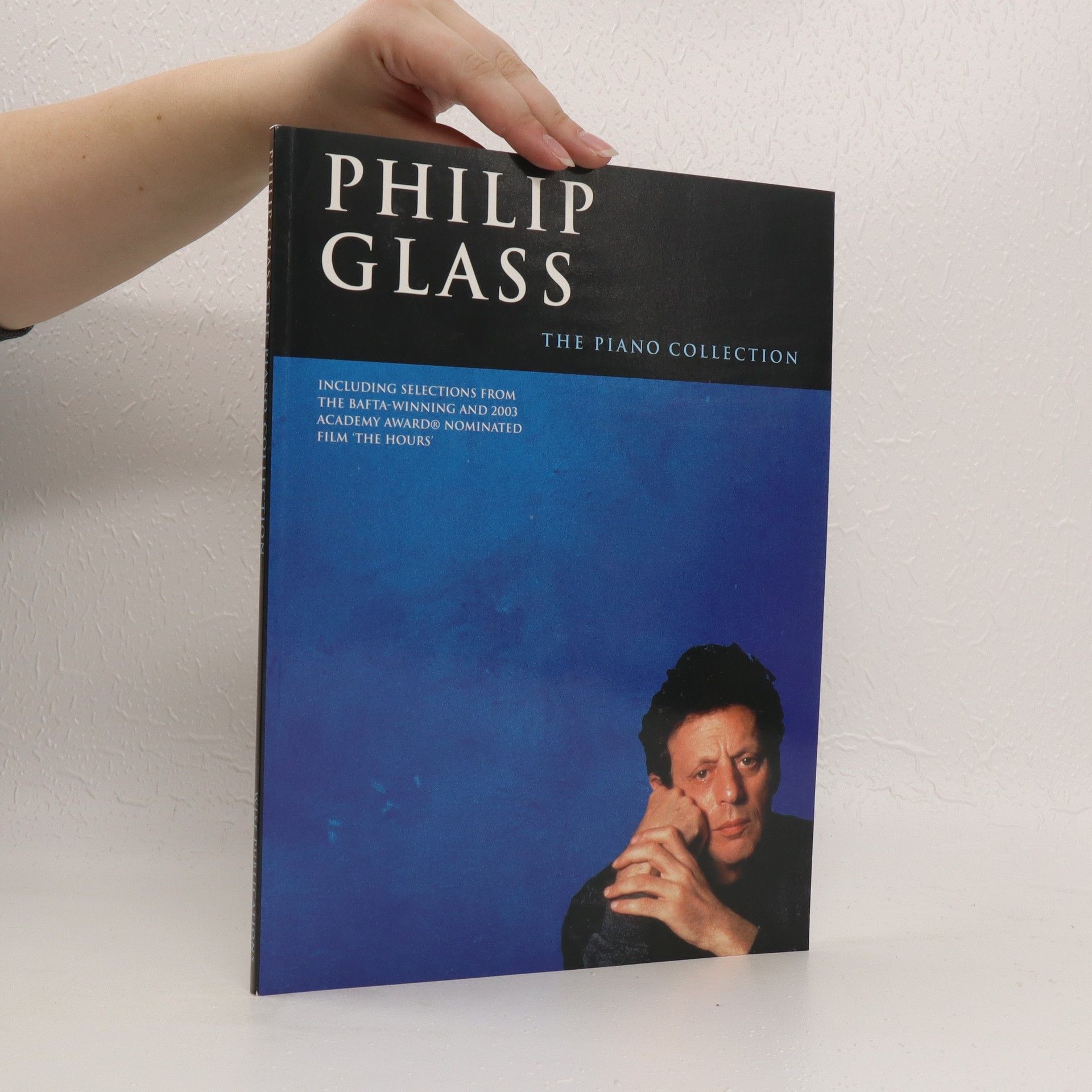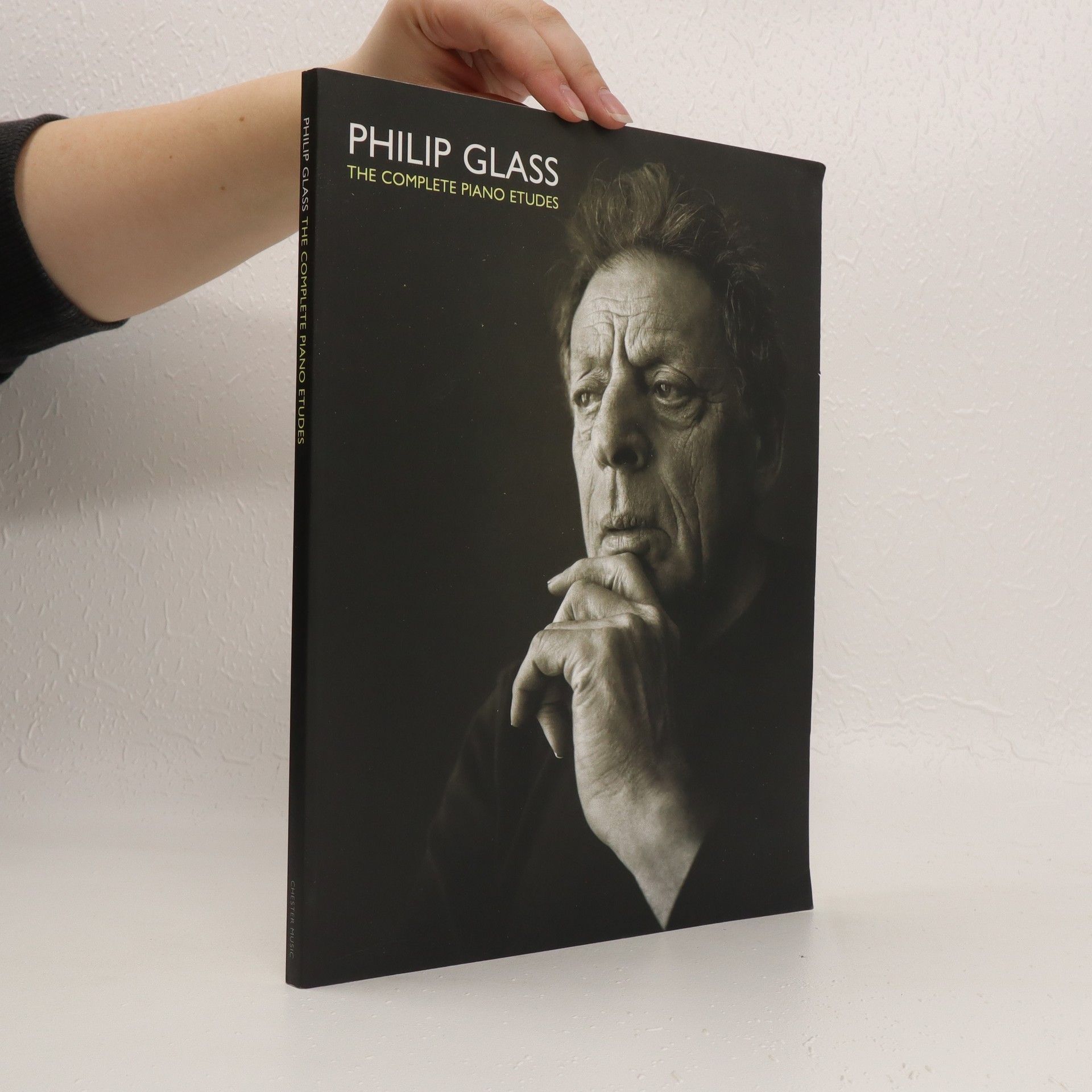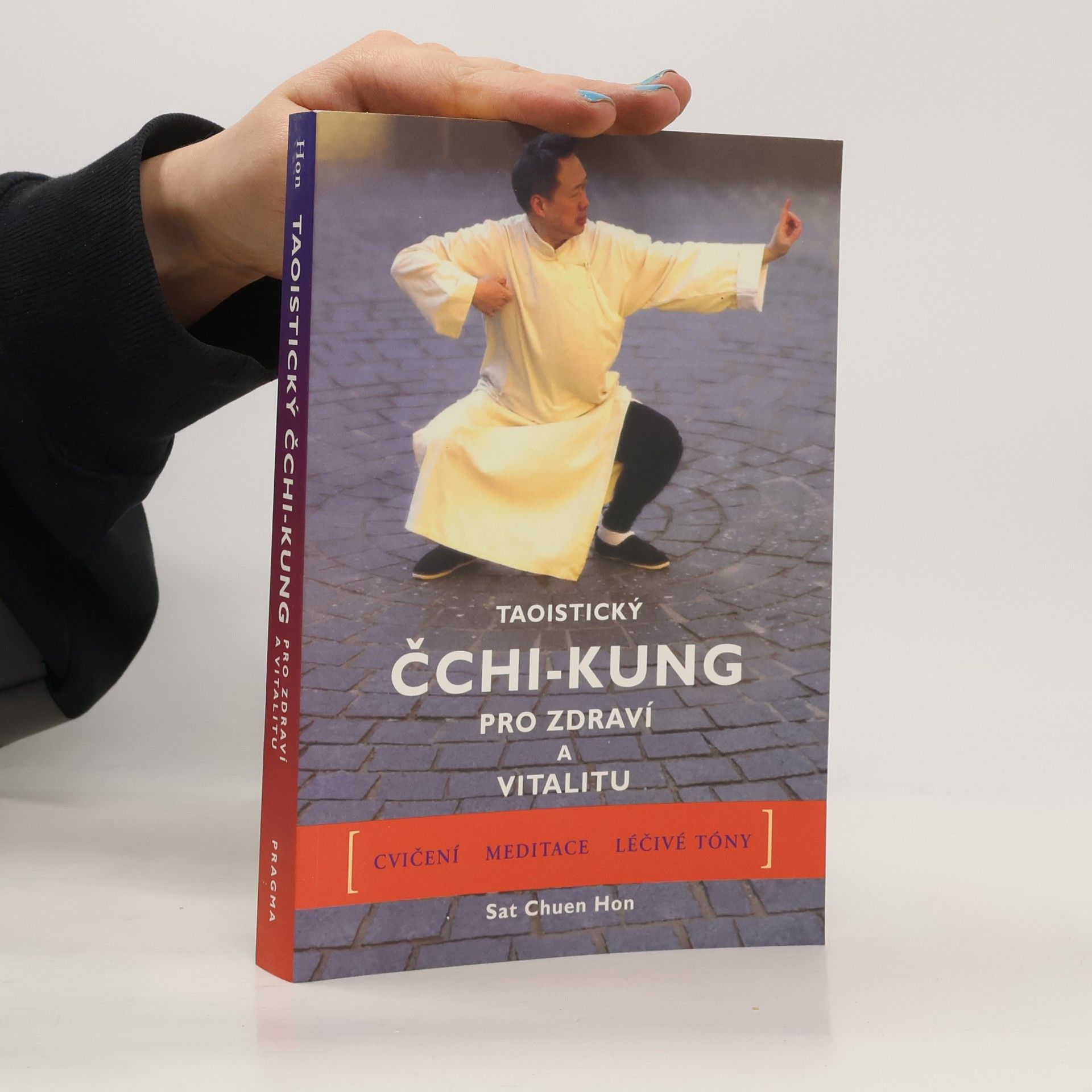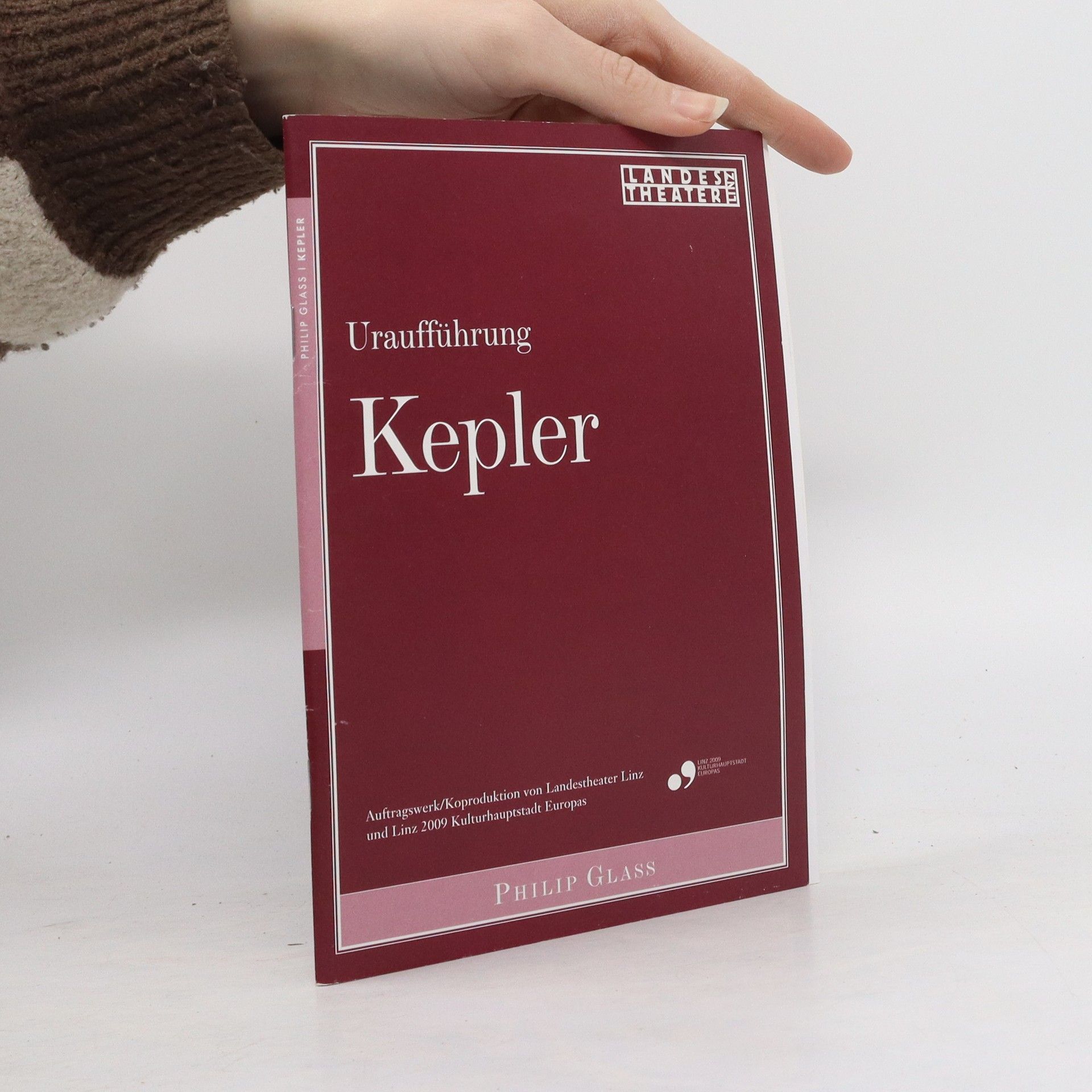(Music Sales America). The Twenty Etudes for Piano were composed during the years from 1991 to 2012. Their final configuration into Book 1 and Book 2 was determined by the music itself in the course of its composition. Taken together, they suggest a real trajectory that includes a broad range of music and technical ideas. In the end, the Etudes are meant to be appreciated not only by the general listener, but especially by those who have the ability and patience to learn, play and perform the music themselves. -Philip Glass
Philip Glass Livres
Philip Glass est un compositeur américain influent, reconnu comme l'un des artistes les plus importants de la fin du XXe siècle. Sa musique, souvent caractérisée par des structures répétitives, a évolué stylistiquement au fil de sa carrière, dépassant les premières descriptions minimalistes pour adopter une approche de formation classique. Créateur prolifique, Glass a composé une œuvre vaste comprenant opéras, symphonies, concertos et musiques de film. Ses compositions relient la musique d'art au grand public, s'inspirant des maîtres classiques et de diverses traditions philosophiques.






Offers a selection of Philip Glass's successful and best-loved pieces for solo Piano, brought together in one collection. These pieces include selections from the BAFTA-winning and 2003 Academy Award[registered] nominated film The Hours. This work also covers the Trilogy Sonata for Piano and pieces from the Metamorphosis Suite.
The composer's discussions of the development of his music are accompanied by the librettos for his operas
Double Concerto for Violin and Cello: Cello Part
- 20pages
- 1 heure de lecture
(String). Philip Glass's Double Concerto for Violin, Cello and Orchestra was composed in the spring of 2010 as a commission from the Netherlands Dance Theater, premiered by the Hague Philharmonic (Residentie Orkest) conducted by Jurjen Hempel on April 22, 2010 with violinist Cecilia Bernardini and cellist Maarte-Maria den Herder.
Philip Glass Piano Etudes
The Complete Folios 1-20 & Essays from 20 Fellow Artists
- 136pages
- 5 heures de lecture
This deluxe boxed set showcases Philip Glass's most intimate musical compositions, offering a profound insight into his creative journey. Accompanied by "Studies in Time," a collection of essays from esteemed artists, it provides a rich exploration of Glass's influence and artistry. This collection serves as both a celebration of his work and a valuable resource for understanding the impact of his music on contemporary art.
Inspired by the insomnia resulting from frequent travels, this unique composition for solo double bass consists of seven movements, each exploring sensory experiences like Tasting and Hearing, culminating in Not Beginning. Not Ending. The piece is enriched by spoken texts from renowned artists such as Lou Reed and Yoko Ono, creating an atmospheric and theatrical experience. Premiered by Robert Black, it reflects Philip Glass's creative response to sleepless nights, transforming idle hours into a profound musical and poetic journey.
Rychlé tempo dnešní doby vede mnoho lidí k návratu k tradičním způsobům života dávných předků. Zcela logicky se do popředí zájmu dostává otázka zdraví narušovaného vlivy moderní doby. To způsobuje zvýšený zájem lidí žijících na Západě o východní léčebné metody, které jsou prověřeny tisíciletími. Čchi-kung patří mezi cvičení spojující pohyb s meditací a s tradičním čínským léčitelstvím. Autor knihy Taoistický čchi-kung, Sat Chuen Hon, je zkušený mistr, který žije v New Yorku, a tak dokáže pochopit mentalitu západního člověka a nenásilnou podobou předložit to, čemu se naučil u svých čínských učitelů. Jeho systém léčivých zvuků je jednou z mnoha podob využívání vokalizace při cvičení. Šest léčivých zvuků je spojeno s určitými tělesnými orgány a jejich smyslem je upravit proudění čchi, energie, v lidském těle. Mistr Hon je nejen erudovaným lékařem, zkušeným taoistickým mistrem, ale také zábavným vypravěčem, který dokáže čtenáře upoutat a navést ho přímo ke cvičení. Jeho poznatky a příběhy o léčivých zvucích jsou výsledkem mnoholeté praxe a ukazují čtenáři, že dávné meditační a tělesné praxe mají své nezastupitelné místo i v dnešní době.
Co je tantra a jaké jsou její cíle? Podle buddhismu má každá lidská bytost potenciál dospět k hlubokému a trvalému štěstí a probuzení. A podle nauk tantrického buddhismu lze této pozoruhodné transformace dosáhnout velmi rychle, budeme-li využívat všech aspektů naší energie – zejména energii našich tužeb. Na rozdíl od konvenčních náboženství tantra uznává, že tato silná energie je nepostradatelným zdrojem duchovního rozvoje. Náš život je totiž tak neoddělitelně spojen s touhou, že její obrovskou energii můžeme využít k transformaci celého svého života. Lama Yeshe představuje tantru jako praxi vedoucí k radosti a objevení sebe sama a využívá přitom jednoduché a jasné příklady vztahující se k životu ve 21. století. Úvod do tantry je ideálním uvedením do této velmi obdivované buddhistické praxe, která však často bývá špatně chápána. S předmluvou Philipa Glasse.
Philip Glass gehört zu den populärsten und erfolgreichsten Komponisten der Gegenwart. Mit diesem Buch gibt Philip Glass dem Leser einen Einblick in die Entstehung seiner drei Porträt-Opern (Einstein on the Beach, Satyagraha und Echnaton). Hintergrundberichte zur musikalischen Erarbeitung, zur Produktion und Besetzung lassen das Entstehen der Stücke intensiv miterleben. Vor allem durch die Zusammenarbeit mit dem Theaterregisseur Robert Wilson wurde Einstein on the Beach zu einem revolutionären Meilenstein in der Musiktheaterentwicklung des 20. Jahrhunderts. Wer insbesondere an der Musik Glass? interessiert ist, wird hier Einblick in die Arbeitsweise des Komponisten bekommen. Philip Glass erzählt von den Anfängen und den Einflüssen seines Musikstils sowie seiner persönlichen Entwicklung.


